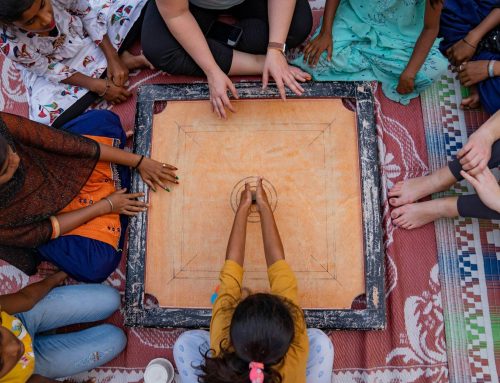Embracing Localisation through Skills Development
As the landscape of development and humanitarian action shifts towards localisation, local NGOs are presented with a unique opportunity to drive positive change in their communities. With increasing donor emphasis on local ownership and capacity-building, it has become essential for local NGOs to up-skill and leverage their deep understanding of local contexts. Here’s how skills development can help local NGOs truly embrace localisation and make a lasting impact:
1. Enhanced Community Engagement:
By investing in skills development, local NGOs can better understand the nuanced needs and dynamics of their communities. This knowledge empowers NGOs to develop context-specific strategies, ensuring that interventions are culturally appropriate, inclusive, and responsive to local realities.
2. Strengthened Partnerships:
Building skills enables local NGOs to establish stronger partnerships with donors, international NGOs, and other stakeholders. With enhanced capacities, local NGOs can contribute as equal partners in development and humanitarian initiatives, collaborating on equal footing to address local challenges and drive sustainable solutions.
3. Improved Fundraising opportunities:
Donors are increasingly recognizing the importance of supporting local NGOs directly. By investing in skills development, local NGOs can enhance their ability to secure funding for their programs and projects. Effective proposal writing, outcome measurement, and financial management skills enable local NGOs to demonstrate their organizational competence and attract financial resources.
4. Context-Specific Expertise:
Local NGOs possess invaluable expertise and deep contextual knowledge that international actors often lack. Skills development allows local NGOs to refine and amplify this expertise, ensuring that their interventions are grounded in local realities and community-led solutions. This strengthens the effectiveness, relevance, and sustainability of development and humanitarian efforts.
5. Increased Local Ownership:
Through skills development, local NGOs can empower their staff and community members to take ownership of development initiatives. By building local capacities, organizations ensure that decisions, project management, and implementation are driven by those with an intimate understanding of the local context, culture, and needs. This fosters greater sustainability and fosters a sense of ownership among community members.
6. Effective Advocacy and Representation:
Skills development equips local NGOs with the tools to effectively advocate for the needs and rights of their communities. By enhancing skills in policy analysis, communication, and advocacy techniques, local NGOs can amplify their voices and represent the interests of their communities at local, national, and international levels.
7. Sustainable Impact:
Ultimately, skills development enables local NGOs to create sustainable and transformative change within their communities. By embracing localisation, upskilling, and leveraging their unique strengths, local NGOs can drive development and humanitarian action that truly reflects the needs and aspirations of the communities they serve.
Embrace the power of skills development to unlock the full potential of your local NGO and achieve sustainable impact. By investing in capacity-building, local NGOs can spearhead locally-led development efforts, foster community ownership, and make a lasting difference in the lives of the people they serve.
Together, let us embrace localisation and create a future where local NGOs are at the forefront of driving positive change. Take the first step towards strengthening your individual skills and organisation knowledge with our classroom-based training in how to write winning proposals, ensure NGO financial sustainability, and master project budgets. Empower your local NGO, drive sustainable impact, and embrace localisation with our skills development training.





